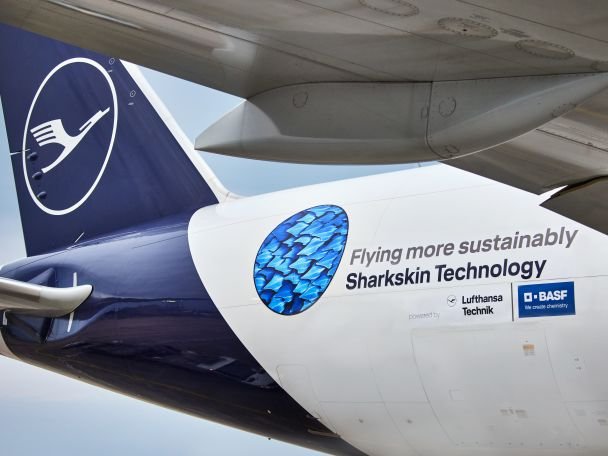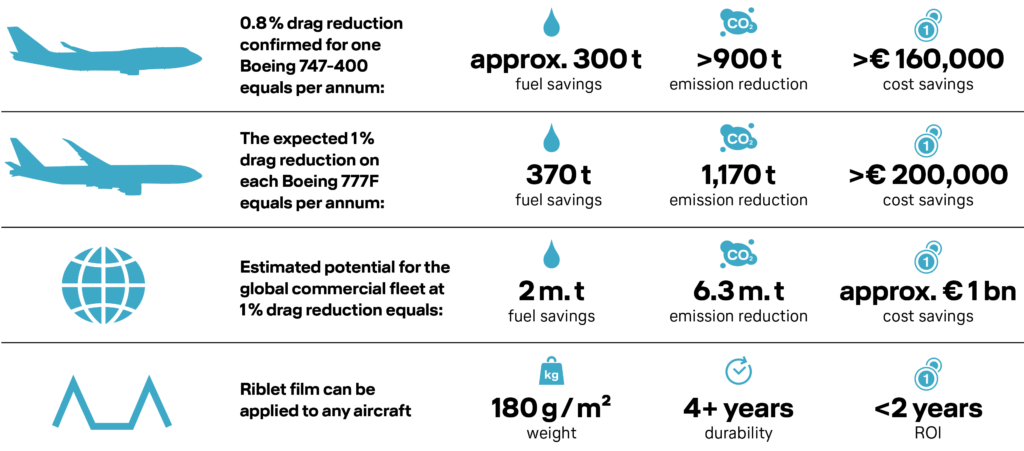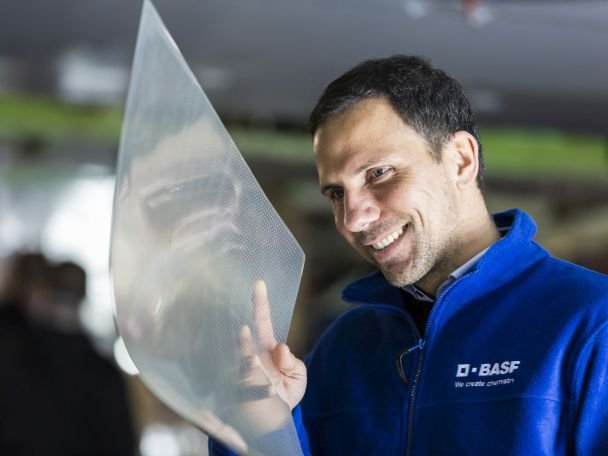AeroShark is an adhesive thin film developed by Lufthansa and BASF that duplicates the teeth-like, aerodynamic scales on a shark’s skin (technically called “denticles”) to minimize wind resistance over a large area, such as an airliner’s wing.

AeroShark quickly cuts fuel consumption — and thereby carbon emissions — from virtually any vehicle with big, flat surfaces. It’s a little but perceptible boost in overall efficiency that may save even tiny airlines like Swiss hundreds of tonnes of jet fuel and CO2 emissions each year.
Swiss engineers determined that 950 square metres (10,225 sq ft) of AeroShark film put to a Boeing 777 in precise patterns aligned with the airflow around the fuselage and engines would immediately cut drag and fuel consumption by 1.1 percent.

That may not seem like much to the average person, but by installing AeroShark on all 12 of its 777s, Swiss expects to save a whopping 4,800 metric tonnes of jet fuel per year, as well as lower its carbon emissions by 15,200 tonnes!
Lufthansa has also stated that it intends to use the AeroShark film on its whole cargo freight fleet of Boeing 777s. That’s “just” 10 planes, but it’s enough to save more than 3,700 tonnes of jet fuel and 11,700 tonnes of CO2 emissions every year.

Furthermore, the AeroShark team feels such estimations are conservative, since the film may be significantly more effective on cargo planes without window holes to manoeuvre around.
Lufthansa and BASF are trying to further develop and enhance the AeroShark technology, and it appears that the product might potentially be upgraded to cut fuel use and emissions by up to 3% compared to current aircraft.
The worldwide aircraft sector utilized more than 95 billion gallons of fuel in 2019. A 3% save translates to 2.85 billion fewer gallons of fuel burnt — which, come on. That is a significant reduction in carbon emissions!
Reference- Lufthansa website, BASF Newsroom & PR, Clean Technica, Statista






